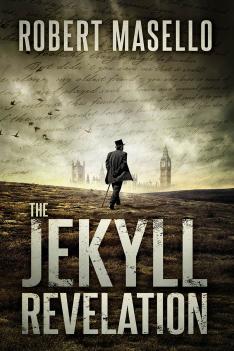
The book: In 1888, as a play adapted from Robert Louis Stevenson’s The Strange Case of Dr. Jekyll and Mr. Hyde was being performed on London stages, the world’s most famous serial killer struck for the first time. A coincidence — but what if the simultaneous appearance of Jack the Ripper and Dr. Jekyll and Mr. Hyde’s run was more than that? What if Stevenson’s tale was not just a product of the writer’s imagination?
Robert Masello ’74’s latest novel, The Jekyll Revelation (47North) moves on parallel tracks threading through the late 1800s and the present day. In the first, Stevenson, now living in Samoa, discovers that the curse he thought he had left behind in London has followed him to his new home; in the second, environmental scientist Rafael Salazar, out on patrol in California’s Topanga Canyon, stumbles upon an antique steamer trunk containing Stevenson’s journal. Also missing from the trunk, however, is a flask containing the last drops of the potion that turned Dr. Jekyll and Mr. Hyde into reality — and it has fallen into the wrong hands.
The author: Robert Masello ’74 is a journalist, television writer, and author of 16 works of fiction and nonfiction. He studied English at Princeton and has previously published The Einstein Prophecy, The Romanov Cross, and Blood and Ice.Opening lines: “From Robert Louis Stevenson, Vailima House, Samoa
To: W.E. Henley, 18 Maybury Road, Old Woking, Surrey, England
Dear Henley—
What I must tell you now, I tell you with dread.
It has happened again.
What we thought—what we prayed—we had left behind us in the back alleys and darkened doorways of Whitechapel has, I fear, awakened from its awful slumber.
It has struck again, right here, in what I had foolishly thought might be Paradise.
And I have been the unwitting agent of its malevolence.”
Reviews: Booklist says, “Readers will find themselves immersed in both stories, past and present, as the journal entries and current events intertwine for the novel’s fiery conclusion.”

